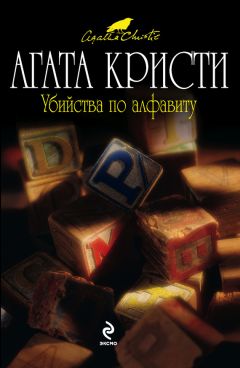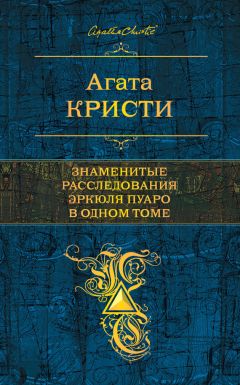Agatha Christie - Английский язык с Агатой Кристи. Убийства по алфавиту
We were building on a forlorn hope (мы возлагали слабую надежду; to build on — пристраивать; рассчитывать на что-л., на кого-л.; forlorn — несчастный; одинокий, покинутый) on the chance of recognizing amongst a crowd of thousands of people a face or figure (на возможность узнать среди толпы из тысяч людей лицо или фигуру) imperfectly seen on an occasion (неясно увиденное случайно) one, two or three months back (один, два или три месяца назад).
insufficiency [ˌɪnsǝˈfɪʃǝnsɪ], forlorn [fǝˈlɔ:n], occasion [ǝˈkeɪʒn]
Doncaster!
I shall, I think, remember that 11th of September all my life.
Indeed, whenever I see a mention of the St. Leger my mind flies automatically not to horse-racing but to murder.
When I recall my own sensations, the thing that stands out most is a sickening sense of insufficiency. We were here on the spot — Poirot, myself, Clarke, Fraser, Megan Barnard, Thora Grey and Mary Drower and in the last resort what could any of us do?
We were building on a forlorn hope on the chance of recognizing amongst a crowd of thousands of people a face or figure imperfectly seen on an occasion one, two or three months back.
The odds were in reality greater than that (перевес /в пользу убийцы/ был в реальности больше, чем этот; odds — неравенство; перевес). Of us all (из нас всех), the only person likely to make such a recognition was Thora Grey (единственным человеком, который мог, пожалуй, сделать такое опознание, была Тора Грей; likely — вероятный, возможный).
Some of her serenity had broken down under the strain (некоторая часть ее спокойствия сломалось под напряжением; serenity — безмятежность, спокойствие). Her usual efficient manner was gone (ее обычное самоуверенное поведение прошло). She sat twisting her hands together (она сидела, заламывая руки: «скручивая руки вместе»), almost weeping (почти плача), appealing incoherently to Poirot (бессвязно обращаясь к Пуаро).
"I never really looked at him (я действительно на него никогда = вовсе не посмотрела) … Why didn't I (почему я не посмотрела)? What a fool I was (какой глупой я была). You're depending on me (вы зависите от меня), all of you (все вы: «все из вас») … and I shall let you down (а я вас подведу; to let down — разочаровывать; подводить). Because even if I did see him again (потому что, даже если бы я действительно увидела его снова) I mightn't recognize him (я бы вряд ли узнала его). I've got bad memory for faces (у меня плохая память на лица)."
recognition [ˌrekǝɡˈnɪʃ(ǝ)n], serenity [sɪˈrenɪtɪ], strain [streɪn]
The odds were in reality greater than that. Of us all, the only person likely to make such a recognition was Thora Grey.
Some of her serenity had broken down under the strain. Her usual efficient manner was gone. She sat twisting her hands together, almost weeping, appealing incoherently to Poirot.
"I never really looked at him … Why didn't I? What a fool I was. You're depending on me, all of you … and I shall let you down. Because even if I did see him again I mightn't recognize him. I've got bad memory for faces."
Poirot, whatever he might say to me (что бы он, возможно, ни говорил мне), and however harshly he might seem to criticize the girl (и как бы резко он, казалось, ни критиковал девушку), showed nothing but kindness now (не проявлял сейчас ничего, кроме доброты). His manner was tender in the extreme (его поведение было чрезвычайно заботливым; tender — нежный, мягкий; заботливый). It struck me (это поразило меня; to strike — ударять; поражать) that Poirot was no more indifferent to beauty in distress than I was (что Пуаро был не более безразличен к красавице в несчастье, чем я; beauty — красота; красавица).
He patted her shoulder kindly (он по-доброму потрепал ее по плечу). "Now then (так), petite (фр. маленькая = малышка), not the hysteria (не /впадайте/ в истерику). We cannot have that (мы не можем позволить себе это: «мы не можем иметь это»). If you should see this man (если вы бы вы увидели этого человека) you would recognize him (вы бы узнали его)."
"How do you know (откуда вы знаете)?"
"Oh, a great many reasons (большое количество причин /есть этому/) — for one (например), because the red succeeds the black (потому что красное следует за черным)."
"What do you mean, Poirot?" I cried (что вы имеете в виду? — вскричал я).
harshly [ˈhɑ:ʃlɪ], criticize [ˈkrɪtɪsaɪz], hysteria [hɪsˈtɪǝrɪǝ]
Poirot, whatever he might say to me, and however harshly he might seem to criticize the girl, showed nothing but kindness now. His manner was tender in the extreme. It struck me that Poirot was no more indifferent to beauty in distress than I was.
He patted her shoulder kindly. "Now then, petite, not the hysteria. We cannot have that. If you should see this man you would recognize him."
"How do you know?"
"Oh, a great many reasons — for one, because the red succeeds the black."
"What do you mean, Poirot?" I cried.
"I speak the language of the tables (я говорю на языке игроков; table — стол; столик для игр; игроки за столом). At roulette (на рулетке) there may be a long run on the black (может долго выпадать черное; run — бег; период, полоса) — but in the end red must turn up (но в конце обязательно выпадет красное; to turn up — случаться; появляться). It is the mathematical laws of chance (это математические законы вероятностей)."
"You mean that luck turns (вы имеете в виду, что удача изменчива; to turn — поворачивать/ся/; изменяться)?"
"Exactly, Hastings (совершенно верно, Гастингс). And that is (и это /значит/) where the gambler (где игрок) (and the murderer (и убийца), who is (кто является), after all (в конце концов), only a supreme kind of gambler (только высшим типом игрока) since what he risks is not his money (так как /то/, чем он рискует, это не только его деньги) but his life (но и его жизнь)) often lacks intelligent anticipation (часто не имеет разумного предвидения; to anticipate — ожидать, предвидеть). Because he has won (потому что он выиграл) he thinks (он думает) he will continue to win (он будет продолжать выигрывать)! He does not leave the tables in good time with his pockets full (он не выходит из-за стола заблаговременно с полными карманами).
So in crime (так и в преступлении) the murderer who is successful (убийца, который успешен) cannot conceive the possibility of not being successful (не может представить себе возможность не быть успешным; to conceive — полагать, размышлять; представлять себе)! He takes to himself all the credit for a successful performance (он приписывает себе всю честь удачного представления; credit — доверие; доброе имя; честь) — but I tell you (но я говорю вам), my friends (друзья мои), however carefully planned (как бы ни было тщательно спланировано) no crime can be successful without luck (ни одно преступление не может быть успешным без удачи)!"
roulette [ru(:)ˈlet], anticipation [ænˌtɪsɪˈpeɪʃŋ], conceive [kǝnˈsi:v]
"I speak the language of the tables. At roulette there may be a long run on the black — but in the end red must turn up. It is the mathematical laws of chance."
"You mean that luck turns?"
"Exactly, Hastings. And that is where the gambler (and the murderer, who is, after all, only a supreme kind of gambler since what he risks is not his money but his life) often lacks intelligent anticipation. Because he has won he thinks he will continue to win! He does not leave the tables in good time with his pockets full.
So in crime the murderer who is successful cannot conceive the possibility of not being successful! He takes to himself all the credit for a successful performance — but I tell you, my friends, however carefully planned no crime can be successful without luck!"
"Isn't that going rather far?" demurred Franklin Clarke (разве это не заходит слишком далеко? — возразил Франклин Кларк; to demur — возражать, протестовать; уст. колебаться, не решаться; сомневаться, раздумывать).




